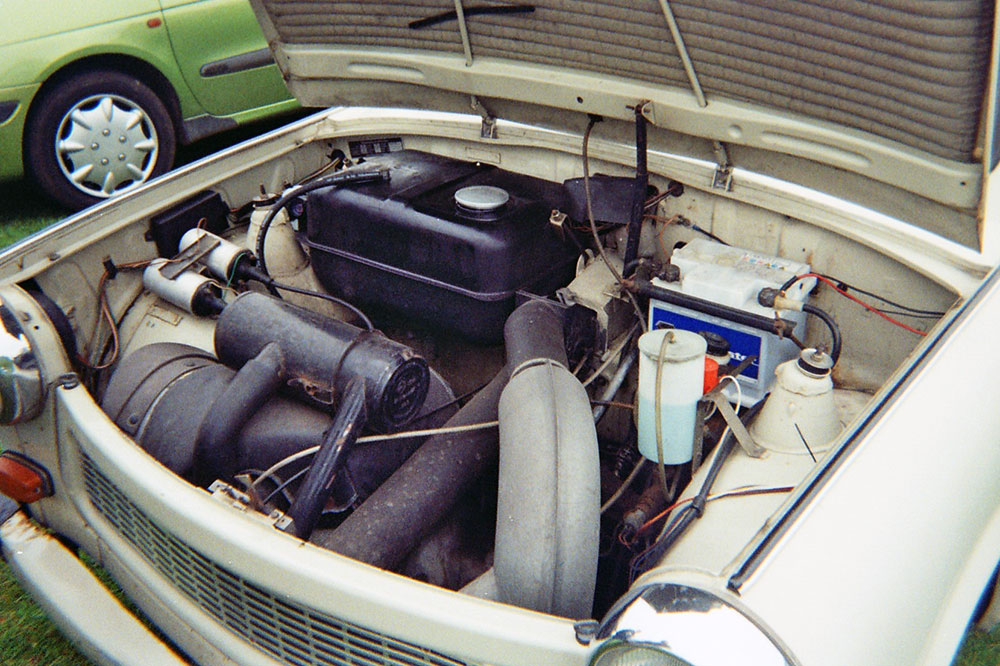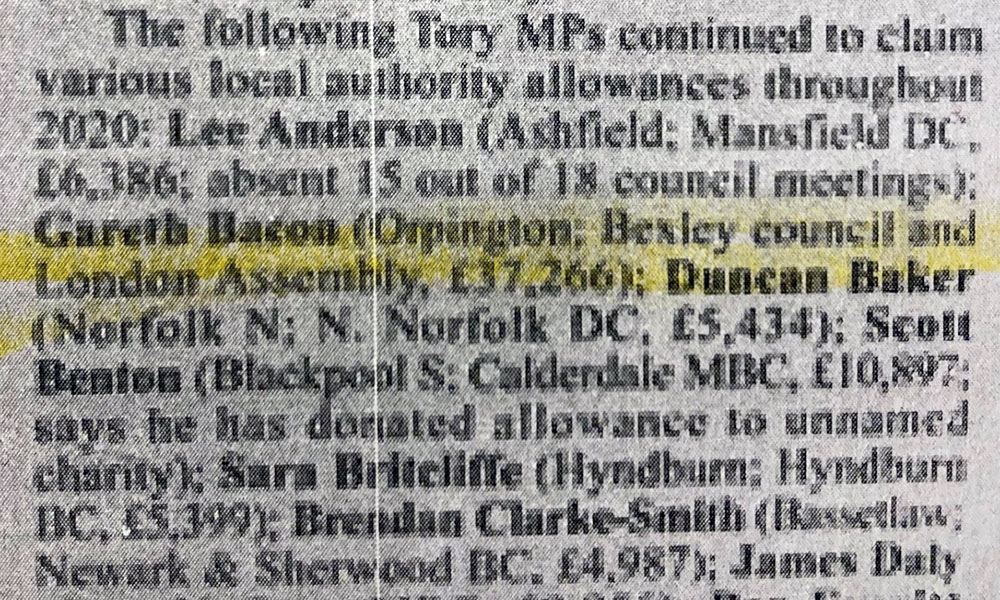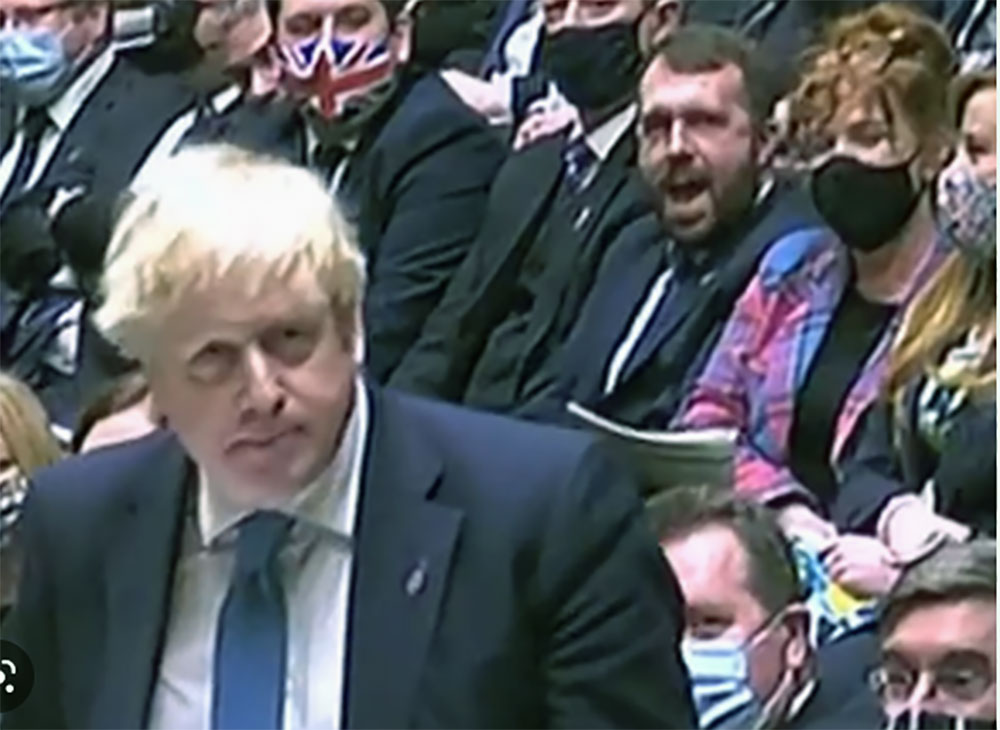15 February - Thinking about ULEZ, Part 4 - A Beautiful Mind
 N.B. There is
a composite of all four (so far) of @tonyofsidcup’s ULEZ articles available here assembled into chronological order.
N.B. There is
a composite of all four (so far) of @tonyofsidcup’s ULEZ articles available here assembled into chronological order.
I have always believed in giving both sides of every story whenever possible which may explain why BiB has never been totally Labour or
Conservative supporting. As my MP said to me once, “you a more a plague on all
their houses sort of bloke” and she was right. Having said that I find it
impossible to see any merit in Sadiq Khan’s plan to extend the Ultra Low
Emission Zone to the country lanes of Bromley and in some places beyond the M25. I know all politicians lie but the Mayor takes things to
extremes, misquoting and cherry picking the Imperial College findings for example.
But a promise is a promise, here is the penultimate and unexpurgated episode of @tonyofsidcup’s
eulogy to London’s worst ever Mayor and you can safely assume I agree with very
little of it. I nevertheless found it interesting and learned some things I
didn’t previously know. It is certainly a well researched piece from someone who may once have aspired to drive a Lada or a
Trabant
but he appears to totally ignore the fact that vehicle pollution pollution is rapidly
disappearing anyway and the cameras can only be justified if the plan is London
wide road pricing, something
predicted on Bonkers a long tIme before it became mainstream thinking.
A faint memory of my past life as an American PhD student is attending
lectures by three economics Nobel laureates. Even in the field of Nobelists,
the three were genuine titans who transformed their fields and had a
far-reaching impact on the world. Robert Merton was a founding father of
quantitative finance, celebrated by academics and by Wall Street “quants”
driving the world’s financial-derivatives industry. Robert Lucas was the
world’s pre-eminent macroeconomist, who changed the way economists model the
economy as a whole, and the way governments and central banks think about
managing booms and recessions. Finally, John Nash made a crucial
contribution to game theory - the science of repeated negotiation - and,
even more impressively, was played by Russell Crowe in the 2001 Hollywood
movie “A Beautiful Mind”. The film told the true story of a brilliant
scientist struck in his prime by mental illness (schizophrenia), and
overcoming it after a long, heart-breaking struggle.
 I
thought of “A Beautiful Mind” when reading a Telegraph article penned by a
fellow Sidcup resident, Mr Gareth Bacon, the Member of Parliament for
Orpington. As some readers will know, before becoming an MP for a Bromley
constituency in 2019, Mr Bacon had been a councillor for Sidcup’s Longlands
Ward - not just a councillor, but a Bexley Cabinet Member and the Deputy
Leader. I moved to Sidcup in 2017, and did not start paying attention to
local politics until 2020 - there was a local issue, the local councillors
(including Mrs Bacon!) seemed uninterested, I became frustrated but also
curious about the Bexley council, and it snowballed from there - so Mr
Bacon’s Bexley period passed me by. Now, I see occasional, favourable
references to him on the Bonkers blog - for example, he is credited for
Bexley’s recycling prowess. A Google search finds a 2015 Evening Standard
article that names Mr Bacon “the capital’s highest paid councillor”,
collecting £108,000 from four (!) public posts, including his roles at
Bexley and the London Assembly, and being Mayor Boris Johnson’s (oh, the
happy days!) appointed person on the London Fire Brigade.
I
thought of “A Beautiful Mind” when reading a Telegraph article penned by a
fellow Sidcup resident, Mr Gareth Bacon, the Member of Parliament for
Orpington. As some readers will know, before becoming an MP for a Bromley
constituency in 2019, Mr Bacon had been a councillor for Sidcup’s Longlands
Ward - not just a councillor, but a Bexley Cabinet Member and the Deputy
Leader. I moved to Sidcup in 2017, and did not start paying attention to
local politics until 2020 - there was a local issue, the local councillors
(including Mrs Bacon!) seemed uninterested, I became frustrated but also
curious about the Bexley council, and it snowballed from there - so Mr
Bacon’s Bexley period passed me by. Now, I see occasional, favourable
references to him on the Bonkers blog - for example, he is credited for
Bexley’s recycling prowess. A Google search finds a 2015 Evening Standard
article that names Mr Bacon “the capital’s highest paid councillor”,
collecting £108,000 from four (!) public posts, including his roles at
Bexley and the London Assembly, and being Mayor Boris Johnson’s (oh, the
happy days!) appointed person on the London Fire Brigade.
(The link says “I am worth every penny”, says a £108,000-a-year politician”,
but I don’t see that line in the text. Interestingly, the 2015 article is by Pippa Crerar, who became Britain’s most-talked-about journalist in 2021,
when she ushered in Partygate with a report of a lockdown-breaking
Christmas Party at Downing Street. For good measure, she also brought down
GLA Conservatives’ Shaun Bailey, with a lockdown party of his own. Standing
next to Bailey in an infamous photo was Bexley councillor Adam Wildman).



 It
rubbed me up the wrong way when in 2021 Mr Bacon showed up in The Private
Eye’s list of councillors who continued to claim their allowance after
election to Parliament - note whose name comes before his! - while,
according to Bexley Labour, failing to attend council meetings.
It
rubbed me up the wrong way when in 2021 Mr Bacon showed up in The Private
Eye’s list of councillors who continued to claim their allowance after
election to Parliament - note whose name comes before his! - while,
according to Bexley Labour, failing to attend council meetings.
These days, I am not overly enthused about Mr Bacon spending £550 of
taxpayer money every month on an assistant to watch his web site and social
media. (Sadly, I was banned by said assistant on Twitter, after jokingly
suggesting that Mr Bacon’s endorsement of Kemi Badenoch in the Conservatives
leadership contest could be a hostage situation, given Mrs Bacon’s
employment in Badenoch’s office). To be perfectly frank, I feel that Mr
Bacon could show a little more restraint when reaching into the taxpayer’s
pocket. At the same time, he strikes me as a highly intelligent man, quite
distant from the Neanderthal wing of Conservative Party, represented by
people like Jonathan Gullis. (Seen sitting next to Mr Bacon and our own Mr
French - patriotically masked - on the image below). This is why what I read in The Telegraph was worrying.
 As
far as I know, there are now two Telegraph articles published by
Mr Bacon, with the later one out just yesterday, on February 13. It was the
earlier article from December 27, 2022 that caught my eye. It opened with this:
As
far as I know, there are now two Telegraph articles published by
Mr Bacon, with the later one out just yesterday, on February 13. It was the
earlier article from December 27, 2022 that caught my eye. It opened with this:
“Sadiq Khan’s latest plan to make it harder to drive should worry us all.
It’s the worst assault on motorists we’ve ever seen. The London Mayor is
determined to price working people off the roads and has ignored their
overwhelming objections, giving them no choice, time or opportunity to avoid
a ruinous bill. If Mr Khan gets away with this, any other city or regional
mayor can impose reckless driving charges across the country. It must be stopped”.
Let’s look past the “overwhelming objections” bit, the false Tory
claim addressed in the previous post. (It is true that lower-income
respondents in the TfL ULEZ consultation were more opposed to ULEZ than
higher-income ones, but consultation respondents were strikingly
unrepresentative of London’s population in the first place. Mr Bacon is
putting his words in the mouth of the average working-class Londoner). It is
the next sentence that worries me. “If Mr Khan gets away with this, any
other city or regional mayor can impose reckless driving charges across the country”.
What’s wrong with this proposition? Why would the ULEZ expansion
open the floodgates? After all, it is an expansion of an existing ULEZ - a
second expansion, even. Recall that efforts to “price working people off the
roads”, as Mr Bacon puts it, have been made for a long time. The “congestion
charge” was introduced, by Mayor Ken Livingstone, on February 17, 2003,
almost exactly 20 years ago. In 2017, after a record air-pollution spike in
January, Mayor Sadiq Khan enacted the “toxicity charge” in October. Finally,
in 2019, the toxicity charge was replaced by ULEZ. (Wikipedia says that the
plans were made by Mayor Boris Johnson, but I will let you verify the
claim). Who was the leader of GLA Conservatives when T-charge and ULEZ were
introduced? A certain Mr Gareth Bacon. By the time of ULEZ’s first
extension, in 2021, he had vacated his leadership role, but remained an
Assembly Member. Without a doubt, he played an active role in these
developments. Does he not believe those changes to be “the worst assault on
motorists we have ever seen”? Or does he simply not remember?
It is not just events before his move to Westminster that Mr Bacon seems to
have forgotten. The Orpington MP appears to be unaware of high-profile,
controversial policies pursued by his own party.
One can begin the story with the Environment Act of 1995, which committed the UK government to
develop the Air Quality Strategy, last updated in 2007. (To recall the first
post in this series, 2007 is when Bexley Air Quality Management Area was
declared). In 2008, the European Parliament issued the Ambient Air Quality
Directive, imposing binding air-quality limits on EU member states. UK,
alongside some other countries, consistently breached the nitrogen-dioxide
limit, in multiple areas including Greater London, and in 2014 the European
Commission began “infringement procedures” against the UK government, with
the case progressing to the European Court of Justice in 2018. In 2021,
already after Brexit, the court found that the UK government had failed to fulfil its obligations.

 By
that time, the government had a legal setback at home as well: in 2015,
the Supreme Court told Whitehall to urgently develop a plan to achieve
compliance with EU’s limits, which became part of the British law. Maybe
this is why in the mid-2010’s, the UK government finally got serious about
air pollution. In 2019, the Clean Air Strategy and the National Air
Pollution Control Programme were published, and year 2021 saw the
Environment Act, which set a number of quantitative targets in areas
including air quality, with particular attention given to the particularly
hazardous (pun intended, though the subject is genuinely grim: this is the
stuff that causes cancers and heart attacks) particulate-matter pollution.
The Office for Environmental Protection was set up - they are the people who
will hopefully be asking Bexley about the missing-for-16-years Bexley Air Quality Action Plan!
By
that time, the government had a legal setback at home as well: in 2015,
the Supreme Court told Whitehall to urgently develop a plan to achieve
compliance with EU’s limits, which became part of the British law. Maybe
this is why in the mid-2010’s, the UK government finally got serious about
air pollution. In 2019, the Clean Air Strategy and the National Air
Pollution Control Programme were published, and year 2021 saw the
Environment Act, which set a number of quantitative targets in areas
including air quality, with particular attention given to the particularly
hazardous (pun intended, though the subject is genuinely grim: this is the
stuff that causes cancers and heart attacks) particulate-matter pollution.
The Office for Environmental Protection was set up - they are the people who
will hopefully be asking Bexley about the missing-for-16-years Bexley Air Quality Action Plan!
 Finally,
the Clean Air Zone framework was developed, allowing - indeed,
requiring - councils with high levels of air pollution (mainly NOx, as it is
mainly produced by cars and “stays local”, unlike PM, which comes from
different sources and travels far and wide) to limit polluting car traffic.
One can find online references to “charging” or “non-charging” Clean Air
Zones, but the current CAZ legislation refers only to “charging” CAZs, where
owners of particular vehicles are asked to pay for entering the zone. (A
“non-charging”CAZ is when a council tries to clean up the air without asking
drivers to pay). Within “charging” CAZes, there are different classes,
depending on what types of vehicles are charged. Class D is the one where
“regular” cars, i.e. not taxis, have to pay. Since 2021, a Class D zone
covers much of Birmingham. Since 2022, a Class D zone applies in central
Bristol. Class C zones, “forgiving” to non-taxis, exist in Newcastle,
Sheffield, Bath and Bradford. Notably, in Bristol, the local council tried
to “water down” the CAZ but was overruled by the government! The same thing
is now happening in Manchester (led by Labour’s Andy Burnham) where the
local council has pointed to the cost-of-living crisis and tried to reject a
CAZ, replacing it with a “non-charging” zone. The government has pushed
back, arguing that it wasn’t good enough! The Manchester CAZ did not go
ahead for now, but it is definitely happening.
Finally,
the Clean Air Zone framework was developed, allowing - indeed,
requiring - councils with high levels of air pollution (mainly NOx, as it is
mainly produced by cars and “stays local”, unlike PM, which comes from
different sources and travels far and wide) to limit polluting car traffic.
One can find online references to “charging” or “non-charging” Clean Air
Zones, but the current CAZ legislation refers only to “charging” CAZs, where
owners of particular vehicles are asked to pay for entering the zone. (A
“non-charging”CAZ is when a council tries to clean up the air without asking
drivers to pay). Within “charging” CAZes, there are different classes,
depending on what types of vehicles are charged. Class D is the one where
“regular” cars, i.e. not taxis, have to pay. Since 2021, a Class D zone
covers much of Birmingham. Since 2022, a Class D zone applies in central
Bristol. Class C zones, “forgiving” to non-taxis, exist in Newcastle,
Sheffield, Bath and Bradford. Notably, in Bristol, the local council tried
to “water down” the CAZ but was overruled by the government! The same thing
is now happening in Manchester (led by Labour’s Andy Burnham) where the
local council has pointed to the cost-of-living crisis and tried to reject a
CAZ, replacing it with a “non-charging” zone. The government has pushed
back, arguing that it wasn’t good enough! The Manchester CAZ did not go
ahead for now, but it is definitely happening.
If
the news from Manchester makes you think “If Manchester managed to
postpone the CAZ, why can’t London postpone the ULEZ expansion?”, I am fine
with that. I would like to draw your attention to a different takeaway. The
UK government - for 13 years now led by the Conservatives - is at long last
serious about air quality and is working to cut car emissions across the
nation. London is leading the way, but is moving as part of a national
trend, a national policy, guided by national targets, some of them distant
(2050), some close (2040), some very close (2030). When Gareth Bacon MP
tells you about Sadiq Khan waging a war on motorists, politely ask him “Are
you forgetting something, Gareth?” and tell him about what you just read.
PS. And do watch “A Beautiful Mind”: Russell Crowe is Australia’s national treasure.
Links
“I can juggle four public posts, says £108,000 a year politician”
https://www.standard.co.uk/news/politics/i-m-worth-every-penny-says-ps108-000ayear-politician-10069317.html
Gareth Bacon’s Wikipedia profile
https://en.wikipedia.org/wiki/Gareth_Bacon
London Congestion Charge (Wikipedia)
https://en.wikipedia.org/wiki/London_congestion_charge
London Ultra Low Emission Zone (Wikipedia)
https://en.wikipedia.org/wiki/Ultra_Low_Emission_Zone
UK Air Quality Strategy for England, Scotland, Wales and Northern Ireland
https://www.gov.uk/government/publications/the-air-quality-strategy-for-england-scotland-wales-and-northern-ireland-volume-1
UK infringes on EU air-quality limits, 2014
https://ec.europa.eu/commission/presscorner/detail/en/IP_14_154
Supreme Court tells the UK Government to act on air pollution, 2015
https://www.theguardian.com/environment/2015/apr/29/supreme-court-orders-uk-to-draw-up-air-pollution-cleanup-plan
Clean Air Strategy
https://www.gov.uk/government/publications/clean-air-strategy-2019
UK National Air Pollution Control Programme
https://www.gov.uk/government/publications/air-quality-uk-national-air-pollution-control-programme
Clean Air Zone framework
https://www.gov.uk/government/publications/air-quality-clean-air-zone-framework-for-england/clean-air-zone-framework
Clean Air Zones in UK (Wikipedia)
https://en.wikipedia.org/wiki/Clean_Air_Zone
Manchester Clean Air Zone postponed
https://www.manchestereveningnews.co.uk/news/greater-manchester-news/clean-air-zone-charges-highly-26212421

